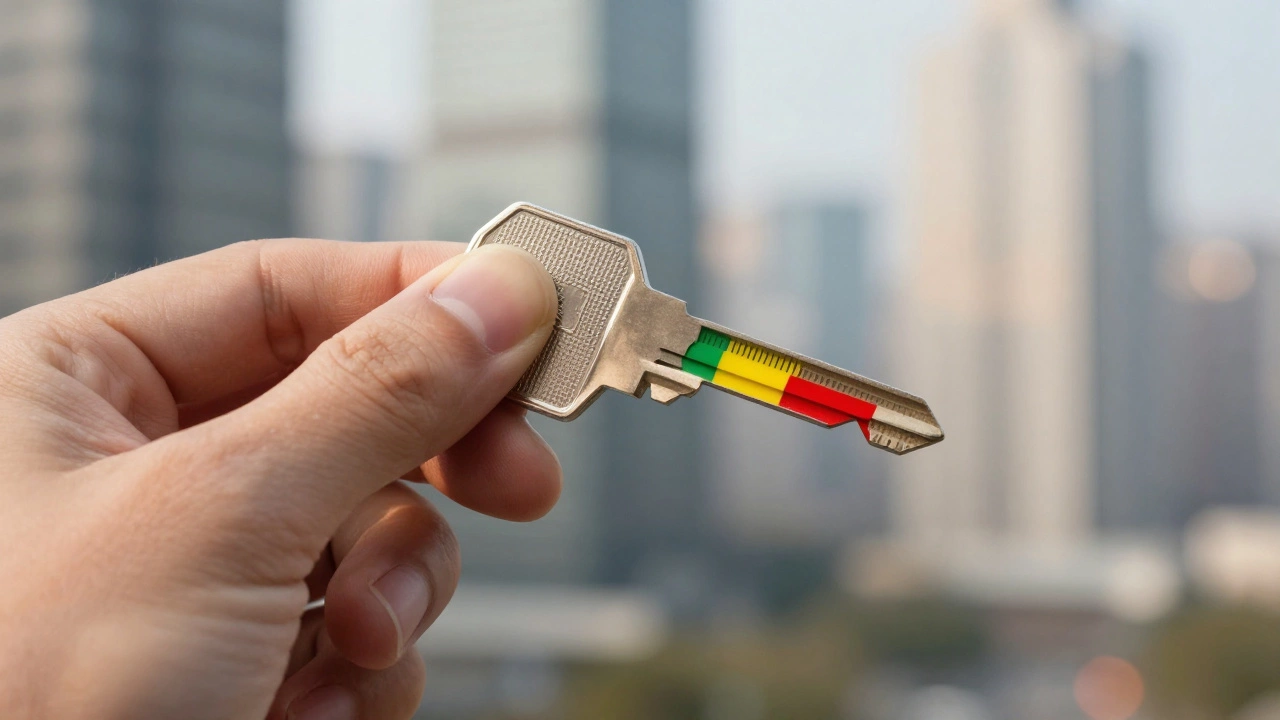If you’ve ever wondered why lenders ask for a three‑digit number, you’re not alone. A credit score is simply a snapshot of how you’ve managed borrowing in the past. In the UK it usually ranges from 0 to 999, and the higher it is, the more likely you’ll get a loan, mortgage or credit card at a good rate. That means a better score can save you hundreds, even thousands, of pounds over the life of a loan.
Most people think a credit score is set in stone, but it’s actually a living number that moves up and down based on your actions. Every time you pay a bill on time, pay down a credit card, or take out a new loan, the scoring agencies update your file. Miss a payment, and it can drop fast. Knowing this gives you control – you can shape the number instead of letting it control you.
Think of your credit score like a GPA for money. Lenders use it to guess how risky it would be to give you credit. A score above 800 is considered excellent – you’ll see the best interest rates. Scores between 600‑750 are good to fair; you’ll still get credit, but rates might be higher. Below 600, many lenders will either turn you down or charge steep fees.
Besides loans, a good score can affect other parts of life. Some landlords check it before renting, insurers may use it to set premiums, and even employers sometimes look at it for certain jobs. So keeping an eye on your score isn’t just about borrowing; it’s about keeping options open.
Ready to boost that number? Start with these three easy habits:
1. Pay bills on time, every time. Payment history makes up about 35 % of your score. Set up direct debits or calendar reminders so nothing slips through.
2. Keep credit card balances low. Aim to use no more than 30 % of your available credit. If you have a £2,000 limit, try to stay under £600. Paying the full balance each month also shows lenders you can manage debt responsibly.
3. Check your credit report for errors. Mistakes happen – a missed payment that isn’t yours or an old account that should be closed. In the UK you can request a free statutory report from Experian, Equifax or TransUnion once a year. Spot an error? Raise a dispute and get it corrected, which can lift your score fast.
Other useful tips include limiting new credit applications (each hard check can shave a few points), keeping old accounts open (they add to the length of your credit history), and using a mix of credit types responsibly, like a credit card plus a small personal loan.
Remember, improvement won’t happen overnight. Most changes take about three to six months to reflect in your score because the agencies need time to see a pattern. Patience and consistency are key.
Finally, keep an eye on your score regularly. Many banks now offer free score checks in their mobile apps. Treat it like a health check – a quick glance each month helps you spot trouble before it becomes a big problem.
By understanding what a credit score does, checking it regularly, and following these simple habits, you’ll turn a confusing number into a useful tool for better financial decisions. Start today, and watch your borrowing power grow.

Discover the credit score requirements for debt consolidation loans. Learn how lenders evaluate your score, options for lower scores, and steps to improve your chances. Get clear facts to make informed decisions about managing debt.

Worried about being denied debt consolidation? Discover the real reasons, how it works, and practical steps if you get rejected for a consolidation loan.

Figuring out if 0% financing affects your credit score doesn’t have to be a mystery. Here’s how zero-interest loans work, their real credit impact, and how to use them wisely for your financial goals.

Wondering if you can snag a $5000 personal loan even with bad credit? This article spills the real talk on your chances, what lenders check, and how to up your odds. Picking the right lender—and watching out for traps—matters way more than most realize. Find some clever tips to boost your chances and avoid sky-high interest rates. If you've got less-than-stellar credit, you're in the right place for direct, practical advice.

Wondering if you can qualify for debt consolidation? This article breaks down the key requirements, from your credit score and debt-to-income ratio to the types of debt you have. You'll find out which financial habits boost your chances, what lenders really look for, and pitfalls to dodge on your application. If you're thinking about rolling multiple payments into one, this guide cuts through confusion and helps you figure out your options. Discover tips to strengthen your odds and make the process smoother.

Ever heard of the 2 3 4 rule for credit cards? It's one of those insider tricks you might not find on the first page of Google, but it can save you loads of headaches if you like comparing or applying for new cards. This article unpacks what the rule is, where it comes from, and how it can protect your credit score while boosting your chances of approval. You'll get practical tips, real-world examples, and a smarter approach to picking your next card. If you're juggling different offers, this is worth your time.

Need a $5000 loan? Your credit score plays a crucial role in determining if you get approved and at what interest rate. Typically, a score of 600 or higher could improve your chances, but lenders also consider other factors. This article delves into understanding credit scores, how lenders evaluate them, and tips on improving your score if it's currently too low. Knowing what lenders look for can prepare you better before applying.

A credit score of 800 or more is a rarity, but understanding what it takes can help you reach this elusive goal. Achieving such a score opens doors to better credit card offers and lower interest rates. From spending habits to payment history, it's essential to know what lenders look for. We explore practical tips and the lifestyle adjustments needed to potentially join this elite group.

Carrying a zero balance on credit cards can influence your financial health and credit score in surprising ways. While it seems straightforward to avoid debt, the credit implications can be complex. This article explores the pros and cons of keeping zero balances and provides practical strategies for maintaining healthy credit habits. Understanding these dynamics is crucial for anyone aiming to manage credit cards effectively.

Deciding whether to cancel a credit card or just stop using it can significantly impact your financial health. This choice can influence your credit score, affect your budgeting strategies, and save or cost you money. By examining the benefits and downsides of each option, you can make a more informed decision. Understand the effects on credit utilization, account age, and possible fees associated with each course of action. This guide aims to help you consider all aspects before making a decision.

Acquiring a $40,000 car with a 600 credit score might seem daunting but is not entirely impossible. By understanding the impact of one’s credit score, exploring various lending options, and employing practical strategies, potential car buyers can increase their chances of securing an auto loan. This article provides insights into what lenders often look for, options available in the market, and tips to improve financing chances. It focuses on real-world solutions, offering guidance on how to maneuver through financial decisions when seeking to purchase a vehicle with a fair credit score.